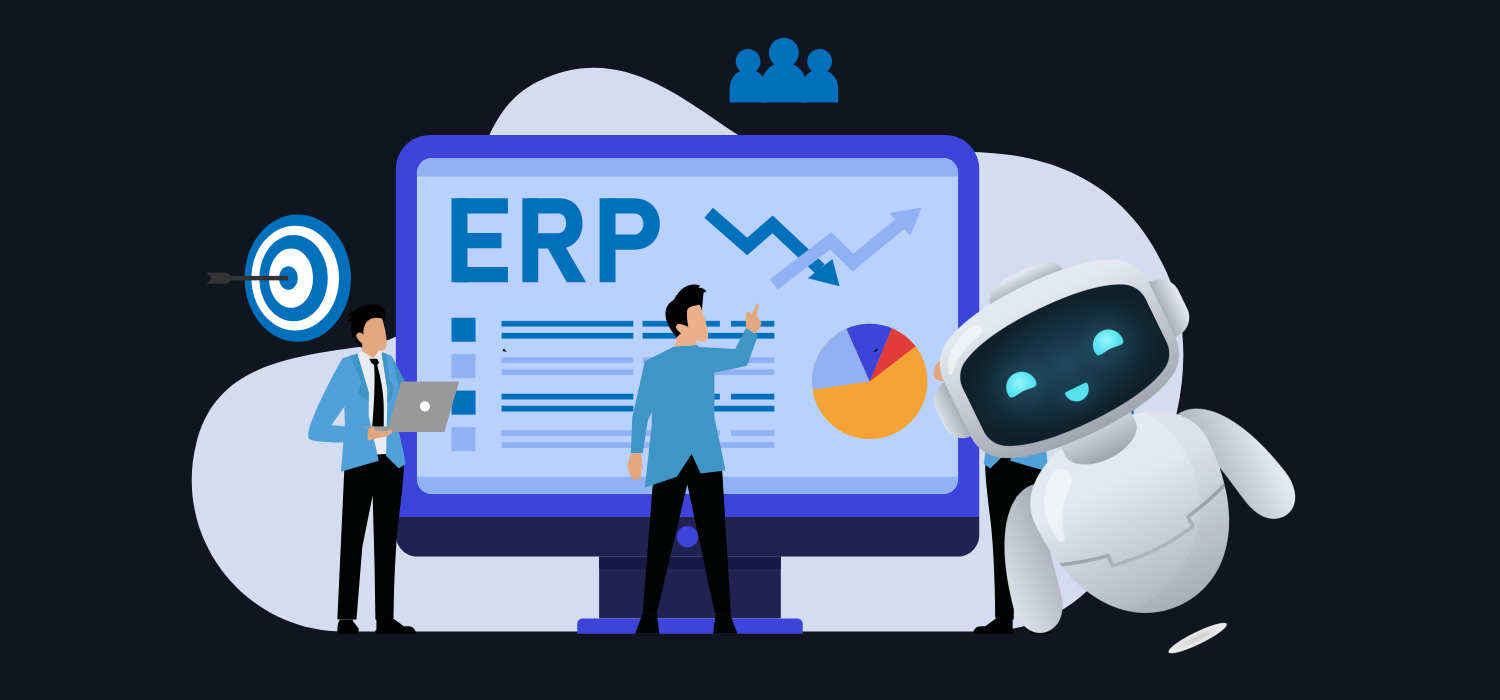How Can SAP and ERP Operations Be Automated with RPA Integration
Enterprise Resource Planning (ERP) systems such as SAP play a crucial role in integrating various business processes and functions, from finance and HR to supply chain and customer relationship management. However, despite the capabilities of ERP systems, many organizations still face challenges in automating repetitive and time-consuming tasks within their ERP workflows.
This is where Robotic Process Automation (RPA) comes into play. RPA technology enables organizations to automate manual and repetitive tasks by deploying software robots or bots that can mimic human actions. By integrating RPA with SAP and other ERP systems, organizations can achieve greater efficiency, accuracy, and scalability in their operations.
SAP and ERP Operations Automated with RPA Integration
Integrating RPA (Robotic Process Automation) with SAP and ERP operations can significantly enhance efficiency, accuracy, and productivity across various business processes. Here’s how RPA can automate SAP and ERP operations:
-
Data Entry and Migration
RPA bots can automate the process of entering data into SAP and ERP systems from various sources, such as spreadsheets, emails, and databases. They can extract data, validate it for accuracy, and migrate it to the appropriate fields within the system.
-
Order Processing
RPA bots can streamline order processing by automatically capturing and processing incoming orders from customers or vendors. They can validate order details, check inventory levels, and update order status in real-time within the ERP system.
-
Invoice Management
RPA bots can automate the end-to-end invoice management process, from invoice receipt to payment processing. They can extract invoice data, match it with purchase orders, route invoices for approval, and update payment information within SAP and ERP systems.
-
Inventory Management
RPA bots can optimize inventory management by automating tasks such as inventory tracking, stock level monitoring, and replenishment orders. They can generate alerts for low-stock items, update inventory records, and trigger purchase orders as needed.
-
Financial Reporting
RPA bots can streamline financial reporting processes by automating data collection, consolidation, and analysis tasks. They can extract financial data from various sources, reconcile accounts, and generate reports in the required format within SAP and ERP systems.
Use cases integrating RPA with SAP and ERP systems
Integrating RPA (Robotic Process Automation) with SAP and ERP systems can revolutionize key processes and workflows across the enterprise, leading to increased efficiency, accuracy, and productivity. Here are some use cases of RPA integration with SAP and ERP systems:
-
Invoice Processing
RPA bots can automate the entire invoice processing cycle, from invoice receipt to payment reconciliation.
-
Order Management
RPA bots can streamline order management by automating tasks such as order entry, order processing, and order fulfillment.
-
Inventory Management
RPA bots can optimize inventory management by automating tasks such as inventory tracking, stock replenishment, and inventory reconciliation.
-
Financial Reporting
RPA bots can automate financial reporting processes by extracting data from ERP systems, consolidating it, and generating reports in the required format.
-
Procurement
RPA bots can streamline procurement processes by automating tasks such as supplier onboarding, purchase requisition processing, and purchase order generation.
Benefits of integrating RPA with SAP and ERP systems
Integrating RPA (Robotic Process Automation) with SAP and ERP systems offers numerous benefits for organizations looking to streamline operations, improve efficiency, and drive digital transformation. Here are some key benefits of integrating RPA with SAP and ERP systems:
-
Increased Efficiency
RPA bots can automate repetitive, rule-based tasks across SAP and ERP systems, such as data entry, document processing, and report generation.
-
Cost Savings
By automating routine tasks with RPA, organizations can reduce labor costs associated with manual data entry and processing.
-
Enhanced Accuracy
RPA bots perform tasks with a high degree of accuracy and consistency, minimizing the risk of errors and ensuring data integrity across SAP and ERP systems.
-
Scalability
RPA bots can scale up or down based on business needs, allowing organizations to handle fluctuations in workload without adding additional resources.
-
Improved Compliance
By automating routine tasks and enforcing standardized processes, RPA helps organizations maintain compliance with regulatory requirements and internal policies.

Key Takeaways
The integration of RPA (Robotic Process Automation) with SAP and ERP systems offers immense potential for organizations seeking to streamline operations, enhance efficiency, and drive digital transformation. By automating repetitive, rule-based tasks across SAP and ERP platforms, RPA enables organizations to achieve increased efficiency, cost savings, accuracy, scalability, compliance, and resource allocation. Overall, RPA integration empowers organizations to unlock new levels of agility, competitiveness, and innovation in today’s dynamic business environment.

 contact
contact

 By
By 


